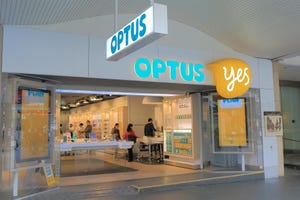
Also in today's EMEA regional roundup: Telkom pursues separate SA listing for towers subsidiary; Ericsson weighs in with lighter radio; Netflix launches free service in Kenya, but only on Android mobiles.
It may well be on a hiding to nothing, but the European Telecommunications Network Operators' Association (ETNO) is once again attempting to convince the skeptics that 5G is a very good thing that won't necessarily fry your brains. In Understanding 5G, which it describes as a "guide for local communities," it sets out how 5G can benefit ordinary folk and addresses the old chestnut of whether or not the technology causes cancer, reminding people that although a 2011 report from the International Agency for Research on Cancer (IARC) classed radio signals as "possibly carcogenic," it put them in the same risk category as pickled vegetables, and slightly below processed meats. Now pass me those gherkins…
South Africa's Telkom is pursuing a separate listing of its Swiftnet masts and towers subsidiary on the Johannesburg Stock Exchange. According to Telkom Group CEO Sipho Maseko, the current Telkom valuation is not a true reflection of the company's worth and that "a separate listing of Swiftnet will affirm the valuation of the masts and towers business and its contribution to the overall valuation of the Telkom business thereby unlocking further value for Telkom." Swiftnet has 6,225 towers and masts to its name.
Ericsson has launched what it claims is the lightest and smallest Massive MIMO radio in the industry. Weighing in at 12kg (26 pounds), the AIR 3268 is 40% lighter than its earlier equivalents, and comes with 200W output power, 32 transceivers and passive cooling. The radio has been developed in partnership with BT, the UK's incumbent operator.
Netflix is launching a free plan in Kenya, allowing those with Android mobile phones and good eyesight to enjoy the streaming service ad-free. Then, once they are hooked on Bridgerton, they can upgrade to a paid plan so they can watch the service on a non-tiny screen. Touching, really.
Iskratel, the Slovenian fiber access specialist, has released Innbox G92, a GPON FTTH home gateway with an integrated fiber termination unit which the vendor claims provides "unparalleled reach of high-speed Wi-Fi coverage inside the home." It also supports multi-gigabit mesh Wi-Fi.
Belgian operator Proximus has combined with Besix, a construction company, and i.Leco, a tech startup specializing in buildings' energy management, to create the irritatingly written "Aug∙e," which its backers describe as a smart building application platform. The central concept is the creation of a building's "digital twin," which is connected in such a way that changes in the properties of one apply automatically to the other.
T-Systems, the IT services arm of Deutsche Telekom, is touting new software that it says allows companies and public sector organizations to gain an accurate "dashboard" overview of where they have reached on the sustainability front according to a list of UN-approved criteria. T-Systems is offering Syrah, as it is called, on a "software-as-a-service" basis.
Glovo, the company behind the eponymous food delivery app that is big in Africa, is expanding its operations to cover Ghana and Tunisia. Glovo's investment in the region to date is worth a combined total of $30 million and the company expects to invest another $60 million over the next 12 months.
— Paul Rainford, Assistant Editor, Europe, Light Reading
Read more about:
EuropeAbout the Author(s)
You May Also Like












